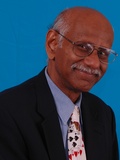THIAGI GAMELETTER:
December 2012
SERIOUSLY FUN ACTIVITIES FOR TRAINERS, FACILITATORS,
PERFORMANCE CONSULTANTS, AND MANAGERS.
TABLE OF CONTENTS
Masthead
Our mission statement, copyright notice, and cast
of characters.
US Workshops
Workshop in New York City in February 2013
And you get a discount, too!
Card Games
Headlines
Can you write the best headline?
Interactive Lecture
Missing Step
Discover possible additions.
International Workshops
Interactive Training Strategies Workshops
Playing (and learning) around the
world.
From Brian's Brain
The Truth About Dishonesty by Brian Remer
A link to the latest issue of Brian's
newsletter.
Online Survey
Leadership and Comfort
Read, reflect, and react
Survey Results
Similarities and Differences
A summary of your responses.
Check It Out
Mieux-Apprendre vous annonce un heureux
événement ! ( http://thiagi.fr/ )
Thiagi in French.
Masthead
THIAGI GAMELETTER:
SERIOUSLY FUN ACTIVITIES FOR TRAINERS, FACILITATORS,
PERFORMANCE CONSULTANTS, AND MANAGERS.
Mission
To increase and improve the use of interactive,
experiential strategies to improve human performance in an
effective, efficient, and enjoyable way.
Editorial Roster
 Author and Editor
: Sivasailam (Thiagi) Thiagarajan
Author and Editor
: Sivasailam (Thiagi) Thiagarajan
 Assistant Editor
: Raja Thiagarajan
Assistant Editor
: Raja Thiagarajan
Associate Editors: Jean Reese
Contributing Editors: Brian Remer
Editorial Advisory Board: Bill Wake, Matthew Richter, Samuel van den Bergh, and <type your name here>
Copyright Info
The materials in this newsletter are copyright 2012 by The
Thiagi Group. However, they may be freely reproduced for
educational/training activities. There is no need to obtain
special permission for such use as long as you do not
reproduce more than 100 copies per year. Please
include the following statement on all reproductions:
Reprinted from THIAGI GAMELETTER. Copyright © 2012
by The Thiagi Group, Inc.
For any other use of the content, please contact us (
thiagi@thiagi.com ) for permission.
Subscription Info
To sign up, or to donate and help us continue this
newsletter, please see the Online
Newsletter page on our website (
http://thiagi.com/pfp.html ).
Feedback Request
Thiagi believes in practicing what he preaches. This is an
interactive newsletter, so interact already! Send us your
feedback, sarcastic remarks, and gratuitous advice through
email to thiagi@thiagi.com . Thanks!
[Table of Contents]
US Workshops
Workshop in New York City in February 2013
For the first time ever in my decades of conducting
workshops, we've had to reschedule one. We planned to conduct
a one-day workshop in New York City this October—but
our plans were messed up by Hurricane Sandy. That's the bad
news. The good news is that we have rescheduled the workshop
for February 5, 2013 in New York City at the same
location.
Basic Information
WHAT? Interactive Techniques for
Instructor-Led Training: A 1-Day Workshop
WHEN? Tuesday, February 5, 2013, 9am-4pm
(Check in at 8:30am)
WHERE? Courtyard by Marriott, Upper East
Side, 410 E 92nd Street, New York, NY, USA. Make your hotel
reservations on the hotel website at http://bit.ly/MXqqcI
.
HOW MUCH? Regular registration rate: $495.
Get $50 off by entering coupon code TGL-NYC when
you register online.
Register Now at http://bit.ly/WtHnjx .
BY WHOM? The workshop is designed and
delivered by Thiagi. No bait and switch!
FOR WHOM? Trainers, facilitators,
instructional designers, performance consultants, and
managers.
Workshop Outline
This workshop comes in two parts. In the morning, we focus
on the design and in the afternoon, we focus on the
delivery:
Part 1. Designing Interactive Strategies
The best way to improve your training is to encourage
participants to interact with each other, with the
content, and with you. In this workshop, Thiagi reveals
five secrets of effective interactive training that is
faster, cheaper, and better. Begin by rapidly exploring 60
different training strategies. Later, master additional
details of selected strategies:
-
Structured sharing that helps
practitioners exchange their expertise with each
other
-
Interactive lectures that enable
you to retain control of the session while participants
interact with each other
-
Textra games that transform your
dull, dry handouts and bring them to life
-
Simulation games that use
inexpensive materials and methods to reflect the
realities of the workplace
-
Jolts that last for a few minutes
and provide powerful insights and concepts
With Thiagi's framegame approach, you will learn how to
load your content on to existing templates to create your
own games in a matter of minutes. You will also learn how
to avoid irrelevant fluff and fun, and immerse your
participants in engaging activities.
Part 2. Conducting Training Games and
Activities
Are you excited about training games and activities but
anxious about losing control, wasting time, and being
attacked by participants? Based on 20 years of field
experience and research, Thiagi shares with you three
important secrets of effective training facilitation:
- Identify seven critical dimensions of
activities-based training (including pace, intensity,
competition, and playfulness). Learn how to select,
maintain, and balance appropriate intensities of these
dimensions.
- Recognize participants from hell and their
disruptive behavior patterns. Learn strategies for
discouraging such patterns and specific tactics for
handling each pattern.
- Identify the importance of the debriefing process
for linking the training game or activity to the
workplace reality. Learn a powerful six-phase model for
maximizing learning from experience.
What You Take Home
In addition to your new set of skills and knowledge, you
will have tangible products:
- A manual with ready-to-use training games and
activities and templates for creating your own
- Access to Thiagi's online collection of 350 training
games
- A monthly newsletter with new training activities and
facilitation tips.
Register Today and Save $50
Because you are a reader of TGL, you may
register at the discounted rate of $445 ($50 off the regular
rate). Enter the coupon code TGL-NYC when
you register.
Register for this workshop by calling Brenda at (812)
332-1478, or visiting our online store at http://bit.ly/WtHnjx
.
Reserve a room at the hotel by visiting the hotel website
at http://bit.ly/MXqqcI
For more information, download our detailed brochure (169K PDF).
[Add your feedback]
[Return to Table of Contents]
Card Games
This activity is included with our decks of Practical Advice Cards.
You can also create your own cards for this game, or even
have teams of participants create cards and exchange them
with each other.
Headlines
An appropriate headline for a piece of practical advice
attracts the readers' attention and highlights the key
elements. It also makes it easier to recall the piece of
advice later. This game rewards players who have a talent for
writing effective headlines.
Synopsis
Players independently write a headline to go with a
randomly selected piece of advice. A non-playing judge
selects the best headline.
Purpose
To create a meaningful and memorable headline for a piece
of advice.
Participants
Minimum: 3
Maximum: 28 (subdivided into groups of 3 to 7)
Best: 5
Time
4 minutes for each round
Supplies
- A deck of Practical Advice
Cards
- Paper and pencil
Flow
Appoint a TKJ. Select one of the players
at each table to take on the role of the Timekeeper-Judge
(TKJ). Reassure the other participants by explaining that
everyone will have a turn being the TKJ during the
subsequent rounds.
Display a card. Ask the TKJ to pull out a
random card and read the piece of practical advice printed
on it. Instruct the TKJ to place the card in the middle of
the table, printed side up.
Think for 30 seconds. Ask the TJK to keep
track of time for 30 seconds. Ask the participants to think
about suitable headlines for the selected piece of
advice—without talking or writing.
Write the headline. After 30 seconds, ask
the players to write a meaningful and memorable headline for
the piece of advice.
Select the best headline. Ask the players
to take turns to read the headline they have written. After
all players have done so, ask the TKJ to select the best
headline and give its author the practical advice card.
Remind everyone that the judge's decision is final and she
does not have to explain her logic.
Continue the game. Ask the next player to
take on the role of the TKJ and repeat the same procedure.
Continue the game until every player has had a turn to be
the TKJ.
Identify the winner. At the end of the
game, ask the participants to count the number of practical
advice cards they have won (by writing the best headline for
each card). At each table, the player with the most cards is
the winner. Identify these winners and congratulate
them.
[Add your feedback]
[Return to Table of Contents]
Interactive Lecture
Missing Step
Many training topics involve procedures or processes. Here's
an interactive lecture design that encourages the participants
to go beyond the content of the presentation and critically
examine the steps of the procedure or phases of the
process.
Purpose
To explore the steps in a procedure or phases in a
process.
Use This Strategy When
- The training content is a procedure with different
steps or a process with different phases.
- The participants know something about the procedure or
process and can conduct a group discussion.
Participants
Any number. The ideal size is 15 to 30, divided into teams
of two to seven.
Time
About 20 minutes for the lecture and 20 minutes for team
discussion and presentation.
Supplies
- Paper and pencil
- Countdown timer
Sample Topics
- Stages in team formation
- Creative problem solving process
- Launching a new product
- The grieving process
- How to coach an employee
Flow
Present your lecture. Explain the
different steps in the procedure or the phases in the
process. Disclose the activities associated with each step
or phase.
Announce the details of the “missing”
step. Tell the participants that you left out one
of the steps or phases in your presentation. (This is not
really true, but there could be more steps or phases in the
procedure that you are describing.) Explain that this step
could be at the beginning, middle, or the end of the
process.
Let the participants work in teams. Divide
the participants into two or more teams, each with two to
seven members. Ask the teams to compare their notes, discuss
the steps, discover the missing step, and work out relevant
details. Announce a 7-minute time limit for this activity
and start your countdown timer.
Invite presentations. Blow the whistle at
the end of 7 minutes. Announce the end of the discussion
period. Ask the teams to take turns presenting their
hypothesis about the missing step and explaining their
reasoning.
Give your comments. Wait until all teams
have made their presentations. Offer your feedback,
comparing the ideas from different teams. If any
presentation indicates some fundamental misconception, be
sure to provide corrective feedback.
[Add your feedback]
[Return to Table of Contents]
International Workshops
Interactive Training Strategies Workshops
During the next few months Thiagi will be flying to different
parts of Canada and Asia, conducting his interactive training
strategies workshop. Here's an update of our international
workshops. For additional information, brochures, and
registration forms, visit our website
calendar.
2012
Winnipeg, MB, Canada: December 2, 2012
Participants and Presenters: Better
Together. Preconference workshop at
the Canadian Association of Professional Speakers National
Convention 2012.
Vancouver, BC, Canada: December 6-7, 2012
Interactive Strategies for Improving
Performance—All New!
2013
Singapore: January 10-12, 2013
Interactive Training
Strategies. Organized by Stanis
Benjamin and his team at Centre for Communication and
Sales Training.
Kuala Lumpur, Malaysia: January 21-23, 2013
Interactive Training
Strategies. Organized by Click
Academy Asia.
Winterthur, Switzerland: June 4-6, 2013
Interactive Training Strategies,
Switzerland. Organized by Samuel van
den Bergh and his team at van den Bergh Thiagi
Associates.
Winterthur, Switzerland: June 7-8, 2013
Design Clinic and Advance Interactive
Strategies, Switzerland. Presented
by Thiagi and Samuel van den Bergh. Organized by Samuel
van den Bergh and his team at van den Bergh Thiagi
Associates.
Coming Soon
We are in the final stages of organizing our workshops in
Australia and India.
[Add your feedback]
[Return to Table of Contents]
From Brian's Brain
The Truth About Dishonesty
by Brian Remer

Sorry to break the news but you probably are dishonest more
often than you realize. We'll explore this phenomenon by
reviewing Dan Ariely's new book which examines our reactions
when faced with opportunities to cheat. Through his research
we quickly learn that the person we most often deceive is
ourselves! Power Tip: Punishment is not
always as much of a deterrent as you might expect.
Read more in the November 2012 issue of Firefly News
Flash: http://www.thefirefly.org/Firefly/html/News%20Flash/2012/November%202012.htm
.
[Add your feedback]
[Return to Table of Contents]
Online Survey
Leadership and Comfort
When you read a piece of advice, it's always a good idea to
take some time to reflect on it.
In this month's online survey, we invite you to read and
reflect on a piece of advice related to leadership.
The Advice
As a leader, go beyond your comfort zone. Keep pushing
yourself into unknown territories until you begin to feel
comfortable. Then seek other stretch goals.

After you have reflected, click the “Respond” button
above to send us your comment on this piece of advice. (The
survey will open in a new window.)
You may include your name along with your response, or if
you prefer, keep it anonymous.
[Add your feedback]
[Return to Table of Contents]
Survey Results
Similarities and Differences
In the October issue of TGL we asked for one
important similarity and one important different between
face-to-face coaching and telephone
coaching. Here are some of your ideas:
-
Similarity: The interaction is based on
trust between two people who wish for the same goals.
Difference: The amount or level of ability
to use non-verbal communication. Also, silence will be
interpreted differently.
-
Similarity: F2F coaching allows both
parties to look (together) at an object (and then to discuss
aspects of it).
Difference: Telephone coaching permits this
only if both parties have the same object.
-
Similarity: Both are designed to
improve individual performance.
Difference: In face-to-face coaching, body
language, gestures and facial expressions play a big role.
In telephone coaching, it's only the voice.
(Arshad
Nadamal, Muscat, Oman)
-
Similarity: Both involve giving the
participant feedback on real-life situations.
Difference: Face-to-face involves the
nuances of in-person interaction, such as body language and
facial expression, that can help the coach know when more
feedback is needed, while telephone coaching lacks that
component.
-
Similarity: Both involve using the
voice.
Difference: Face to face includes analyzing
physical responses while telephone coaching can only judge
changes in the voice.
-
Similarity: In both situations, the
focus is on the coach helping the other person solve
problems and improve his or her productivity.
Difference: Telephone coaching will not
work as effectively as face-to-face coaching to improve
psychomotor skills such as golf swing.
-
Similarity: Both are one on one coaching
Difference: In phone coaching one has to
depend a lot on nonverbal cues as tone of voice while in
face to face one the coach and coachee has more visual
inputs.
(Nitul)
-
Similarity: Both seek to enable the
person being coached to resolve a difficulty so they can
improve their performance in an area that is important to them.
Difference: F2F coaching enables the coach
to take in the nonverbals whereas the telephone coach needs
to ask more clarifying questions to pick up whether things
like hesitation are breathing spots or resistance. Telephone
coaches, to me, need more permission to clarify and explore
because they must be certain that they are picking up the
correct messages.
-
Similarity: Person to person coaching
Difference: It's possible to observe the
person in face-to-face coaching. In telephone coaching, you
have only one element: the voice and the words.
Thanks to everyone who responded.
[Add your feedback]
[Return to Table of Contents]
Check It Out
Mieux-Apprendre vous annonce un heureux
événement ! ( http://thiagi.fr/ )
Pour célébrer le partenariat officiel entre le
Thiagi's Group et Mieux-Apprendre, nous sommes heureux de vous
annoncer la mise en ligne du site thiagi.fr .
À travers cette vitrine, vous découvrirez tous
les trésors de Thiagi, jeux-cadres, jeux à
thème, jolts, ainsi qu'une expertise unique qui fait sa
renommée mondiale.
Ce site de référence vous permettra aussi de
partager vos expériences, et sera alimenté par
vos échanges et nos ressources de manière
régulière.
Toute notre équipe est honorée de cette
confiance, qui fait de Mieux-Apprendre le partenaire officiel
de Thiagi en francophonie et son représentant le plus
actif pour promouvoir son nom et son œuvre.
De façon régulière, Thiagi répond
avec enthousiasme à notre invitation pour animer nos
formations sur le thème des stratégies
interactives. Prochaines dates : printemps 2014 !
Pour tout renseignement complémentaire : contact@thiagi.fr .
[Add your feedback]
[Return to Table of Contents]
 Author and Editor
: Sivasailam (Thiagi) Thiagarajan
Author and Editor
: Sivasailam (Thiagi) Thiagarajan Assistant Editor
: Raja Thiagarajan
Assistant Editor
: Raja Thiagarajan
